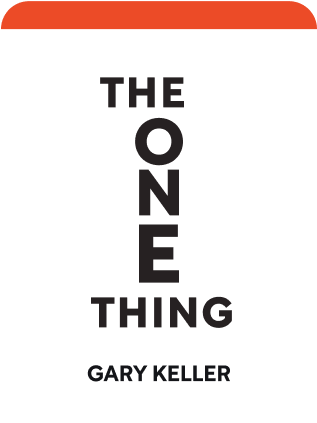

This article is an excerpt from the Shortform book guide to "The One Thing" by Gary Keller. Shortform has the world's best summaries and analyses of books you should be reading.
Like this article? Sign up for a free trial here .
What is the 80/20 law? How can focusing on the vital few help you succeed?
One myth standing in the way of success is that everything is important. However, all things are not equally important—figuring out and focusing on the most important things is the key to success. The 80/20 law states that a minority of effort (20%) produces the majority (80%) of the results. That means that focusing on the few, highest-impact things is the key to creating extraordinary results.
Read more to learn about the 80/20 law.
Everything Is (Not) Equally Important
We act on what we believe. Unfortunately, a lot of what we believe—what we accept as objectively true or as common sense—is nonsense. For instance, we believe that:
- You can cook a live frog without it jumping out of the pot by turning up the heat slowly.
- A fish rots from the head down.
- You should bet on the jockey, not the horse.
Most of us believe similar myths about success, which keep us from focusing on One Thing.
The first myth standing in the way of success is that everything is important. However, all things are not equally important—figuring out and focusing on the most important things is the key to success.
We’re flooded with new information and input constantly—from personal interactions, family demands, directives from the boss, emails, requests from colleagues, and constant “alerts” from our cell phones. Everything feels urgent and important, so we try to do everything. However, despite being busy, we don’t accomplish much. Being busy isn’t the same as being productive or successful.
In fact, no one succeeds by being the person who does the most.
To-Do Lists
The time-management and “success industry” advocates tell us to-do lists are the answer for bringing order to chaos. However, without prioritization, they’re merely “survival” lists of our best intentions, not paths to success. In fact, they lead everywhere but to success.
With tasks and information bombarding us, we write items down on scraps of paper or build them into lists on notepads. We use planners, calendars, and notebooks to list daily, weekly, and monthly tasks, or we go mobile, using cell phone apps to create digital lists.
While they can be useful, lists more often control and distract us with inconsequential things we feel obligated to do because they’re on our list. But spending hours checking off items on a list has nothing to do with success. Instead of a to-do list, you need a “success” list created for achieving specific, extraordinary results.
Here are the differences between a to-do list and a success list:
- To-do list: long, disorganized, pulls you in many directions
- Success list: short, prioritized, aims you in a specific direction using sequential stepping stones to success
If a list isn’t built for success, it won’t get you there. If it covers everything, it will take you everywhere but where you want to go.
To turn your to-do list into a success list, follow the 80/20 law and prioritize.
The 80/20 Law
The 80/20 law, also called the Pareto Principle, states that a minority of effort (20%) produces the majority (80%) of the results.
In the 19th century, economist Vilfredo Pareto used it to describe wealth concentration in Italy, where 20% of the people owned 80% of the land. Much later, U.S. quality control expert Joseph Juran applied the idea to manufacturing, theorizing that a small number of flaws in the manufacturing process would produce a majority of product defects. Juran referred to the idea of the “vital few” versus the “trivial many” as the Pareto principle.
If a minority of your effort leads to the majority of results, then focusing on the few, highest-impact things is the key to creating extraordinary results. This means everything isn’t equally important. Some things matter much more than others.
You can see this principle in almost everything:
- A few ideas account for most of your results.
- A few clients bring the most value to your business.
- A small number of employees contributes the most to your business’s success.
- A few investments produce the bulk of your returns.
You turn a to-do list into a success list when you apply Pareto’s Principle and prioritize or focus on the things that matter most.
Extreme Application
To achieve extraordinary success, go even smaller than the vital few in choosing your focus. Keep on figuring out the 20% of the 20% of the 20% until you arrive at One Thing.
Applying this to his business, Keller reduced a list of a hundred ideas to make his company #1 in its field to just one idea: he would write a book about excelling in real estate. The book became a best-seller, launched a series of books, and changed the company’s image.
In his personal life, Keller applied the One Thing rule to learning to play the guitar. He decided he’d get the greatest impact from his limited practice time by focusing on scales. He narrowed that further to practicing the minor blues scale. Applying it, he could play the solos of several great classic rock guitarists. The scale became his One Thing and opened up the rock world.
The 80/20 law is like a compass that points you in the direction of the One Thing that matters most.

———End of Preview———
Like what you just read? Read the rest of the world's best book summary and analysis of Gary Keller's "The One Thing" at Shortform .
Here's what you'll find in our full The One Thing summary :
- Why focusing daily on one thing, rather than many, is the key to success
- How success is like dominos
- The six common myths about success






